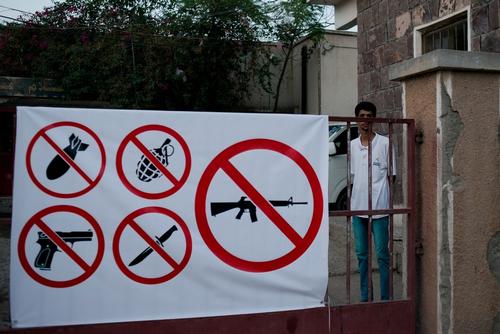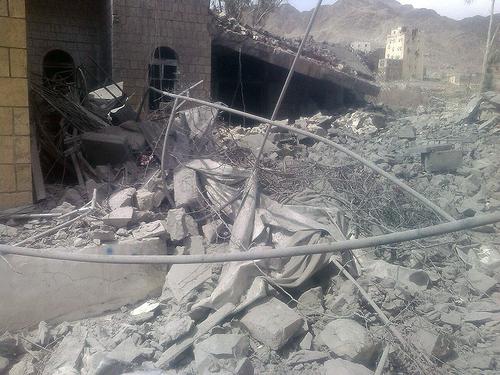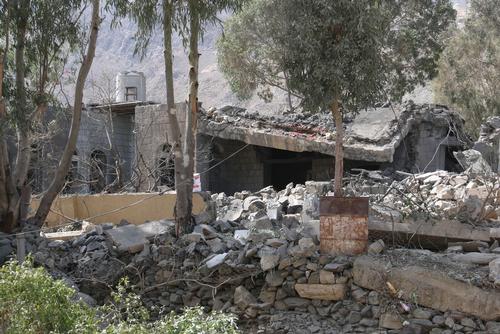The duty of treating the wounded and sick, and the correlating protection of medical personnel and facilities, has been at the core of international humanitarian law (IHL) since its inception in 1864. This was further enshrined in the Four Geneva Conventions of 1949 and the Two Additional Protocols of 1977. The protection of medical services in war zones is also part of International Humanitarian Customary Rules and is reflected in the domestic law and military code of all countries around the world.
The following is a brief introduction to the main principles guiding the protection of medical services under international humanitarian law.
Grave Violation of International Humanitarian Law
A targeted attack on a medical facility is a violation of IHL and can constitute a war crime if it was
- intentional,
- due to negligence stemming from a failure to properly verify the military or civilian nature of the target,
- a disproportionate response to the identified military threat, or
- undertaken without advance warning of an imminent attack.
Protection of the Wounded and Sick
The Geneva Conventions stipulate the imperative to protect the wounded and sick, without discrimination and in respect of the rules of medical ethics.
Under IHL, as soon as a person is wounded, they are protected, no matter how they were wounded, nor if they participated in hostilities on any side. A combatant who is wounded and ceases fighting can no longer be considered a combatant. The wounded must be collected and given medical care with the minimum delay possible.
The Obligation to Give Medical Care
Under IHL, medical personnel are obligated to treat all patients without discrimination. Patients are not registered according to their ethnicity, politics, religion, or participation in prior hostilities. They are triaged only according to their medical needs and the urgency with which they need to be seen. Withholding care or providing care in a discriminatory fashion is strictly prohibited—it is a breach of medical ethics as well as the Geneva Conventions, and can amount to a war crime.
Protection of Medical Personnel and Medical Ethics
Medical personnel are protected under IHL to ensure that they are able to resist military interference and act with independence and autonomy according to medical ethics only. In other words, medical personnel must be free to treat patients based on medical need alone and cannot be compelled or give priority to treat one side or the other. Medical personnel may not breach doctor-patient confidentiality and cannot be punished for carrying out medical activities, regardless of the profile of the patient.
Medical personnel must defend the ethical, neutral, and impartial character of medical structures, units, and activities. They are responsible for maintaining the medical and neutral nature of the facilities. In MSF facilities, a weapons-free policy is strictly implemented. All weapons are collected at the entrance and stored until the patient is discharged.
Protection of Medical Facilities and Precaution in Any Attack
Medical facilities and transports must be respected and protected at all times and cannot be attacked. They are afforded a special protection as a medical facility, while also retaining the general protections applied to civilians and civilian structures. It is mandatory for warring parties to take all precautions to ensure medical staff and facilities are not attacked.
Distinction
Parties to conflicts are only allowed to attack identified and legitimate military targets. Before attacking, all parties to conflicts must make every attempt to ascertain their proposed target’s civilian or military nature. If there is any doubt, armed forces must presume that it is civilian and refrain from attack.
It is prohibited to strike a building without knowing what it is. Attacking a structure without knowing what it is constitutes a violation of IHL.
When a Hospital Loses Its Protection
A hospital can only lose its protected status if it is used outside of its medical purpose to commit acts harmful to an enemy - i.e. as an active combat position. Treating wounded combatants does not meet this standard (and, as noted, failure to treat wounded combatants would be the violation of IHL), nor would instances during which unarmed people seek refuge inside a hospital. What's more, protection ceases only after due warning has been given to evacuate civilians and this warning has gone unheeded.
The proportionality test: If a hospital loses its protected status, armed forces can only attack after issuing the warning, and only in proportion to the threat. For example, if a gunman is firing from a hospital, the other warring party could respond, but only against the gunman, not by destroying the entire hospital. Any direct expected military advantage gained by such an attack must also be weighed against the potential loss of civilian life. The means and methods of the attack must been chosen to avoid or minimise civilian deaths.






